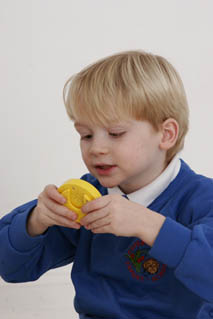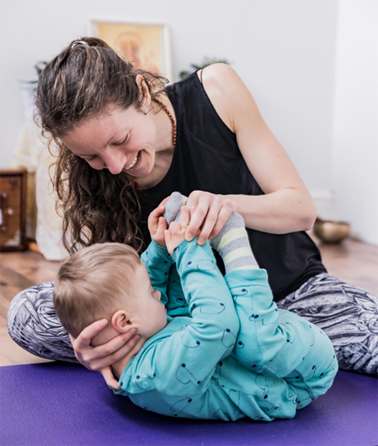This is a time when neurodiversity and ASD have a higher profile in our society than ever before, but the jury is still out when it comes to many aspects of autism. For many years diagnosis was made based on the Triad of Impairments where individuals had obvious issues with imagination, social communication and social interaction.

(picture from https://www.weightedblanketguides.com/benefits-autism-adhd/)
These days we no longer accept that four times as many boys as girls have ASD and there is more emphasis on sensory processing disorders, obsessive behaviours and OCD.
One of my main interests in the field of special needs is what parents can do to make life at home a little bit easier. As parents of new babies quickly discover, a lack of sleep distorts every aspect of family life, so I was especially pleased to be contacted by Wendy Rhodes who is based in the San Francisco Bay Area. She is the founder and editor of a magazine and blog called Weighted Blanket Guides which covers many different aspects of autism and ADHD with links to the latest research.
Weighted clothing and bedding work on the proprioceptive system and tactile sensory system. Put simply they make people feel more comfortable and secure when their senses are jangling and they are over-stimulated by the world around them. Apparently it is the same science as hugs!
Weighted bedding is not the same thing as piling a bed with all the blankets and quilts you can find. ‘A weighted blanket usually consists of several square pockets filled with weights such as poly pellets, glass beads or even rice,’ explained Wendy. ‘The squares are sewn together like a quilt. This quilting technique is what helps distribute the weight evenly over the body.’
Some experts are sceptical about the benefits of weighted bedding. For example, Professor Paul Gringras, a consultant sleep expert at Evelina London Children’s Hospital led a study of 73 children aged between five and 16 with Autistic Spectrum Disorders (ASD) and poor sleep from 2010- 2013. He said: ‘These blankets can cost more than £100, so it’s important to know that they actually work. We have found no evidence that they make any difference to these children’s sleep compared with normal weight blankets.’
Weighted blankets help to regulate breathing and heart rates and can improve the production of serotonin. Some children may use them for just half an hour before bedtime, for long car journeys or when they are stressed while others will benefit from having them on the bed all night. Generally, a weighted blanket for a child should be approximately 10% of their body weight plus one or two pounds.
Parents who are in two minds about the benefits may have noticed that a night-time visit from a cat or dog can provide that extra weight and reassurance to an anxious child. The blankets offer many advantages: they are not only more hygienic but also, they don’t jump off in the middle of the night or decide to come and sit on your chest as you are trying to turn over.
Weighted bedding and clothing are available in the UK from https://www.specialneedstoys.com/uk/proprioception/deep-pressure
 Tania Marshall, Autism Ambassador at Education Placement Group, suggests how children with autism can be supported. ‘It is important to educate all pupils about autism and tolerance of difference. Students with autism could also be assigned a ‘neurotypical buddy’ who makes sure they are safe and supported. Friendship skill acquisition, from as young as possible, is crucial for pupils with autism to learn. The best basis for this is through commonly held interests with peers. ‘
Tania Marshall, Autism Ambassador at Education Placement Group, suggests how children with autism can be supported. ‘It is important to educate all pupils about autism and tolerance of difference. Students with autism could also be assigned a ‘neurotypical buddy’ who makes sure they are safe and supported. Friendship skill acquisition, from as young as possible, is crucial for pupils with autism to learn. The best basis for this is through commonly held interests with peers. ‘ Autism with Attitude, a talented and successful street dance group based at the Uxbridge school, have made history by being the first ever special needs dance group to get to United Dance Organisations (UDO) European Championships. This year the championships are being held 11-13 May in Kalkar in Germany.
Autism with Attitude, a talented and successful street dance group based at the Uxbridge school, have made history by being the first ever special needs dance group to get to United Dance Organisations (UDO) European Championships. This year the championships are being held 11-13 May in Kalkar in Germany. The Education Show is a firm favourite with many teachers in the midlands and north of England and, sitting alongside Birmingham airport, it attracts staff from Ireland and Europe as well. It offers schools everything from pencils and stickers to high cost technology and is increasingly popular as a source of professional development. Those responsible for special needs will appreciate having time to catch up with the latest products and enjoy some first-rate free training in the Early Years and SEN Theatre.
The Education Show is a firm favourite with many teachers in the midlands and north of England and, sitting alongside Birmingham airport, it attracts staff from Ireland and Europe as well. It offers schools everything from pencils and stickers to high cost technology and is increasingly popular as a source of professional development. Those responsible for special needs will appreciate having time to catch up with the latest products and enjoy some first-rate free training in the Early Years and SEN Theatre. Glyndwr University, will be talking about Supporting Mental Health in Schools: Counselling Skills and Therapeutic Play Skills Training. (Thursday 16 March, at 3.10pm). It is not only children who struggle; Robert Whitelock, teacher of mathematics at Garforth Academy, claims that 1 in 4 school staff are likely to suffer from mental health issues. With increasing numbers of staff absent through stress it would be a good idea for senior leaders to attend Managing Mental Health – A Resilience Toolkit, at 10.40am Saturday 18th March.
Glyndwr University, will be talking about Supporting Mental Health in Schools: Counselling Skills and Therapeutic Play Skills Training. (Thursday 16 March, at 3.10pm). It is not only children who struggle; Robert Whitelock, teacher of mathematics at Garforth Academy, claims that 1 in 4 school staff are likely to suffer from mental health issues. With increasing numbers of staff absent through stress it would be a good idea for senior leaders to attend Managing Mental Health – A Resilience Toolkit, at 10.40am Saturday 18th March. lds, with more than 2.2 million weekly readers on stand N87
lds, with more than 2.2 million weekly readers on stand N87 The MahaDevi Centre offers 100 therapy sessions per week in the centre as well as treatment in schools, day centres, nurseries, hospitals and children hospices across London.
The MahaDevi Centre offers 100 therapy sessions per week in the centre as well as treatment in schools, day centres, nurseries, hospitals and children hospices across London.